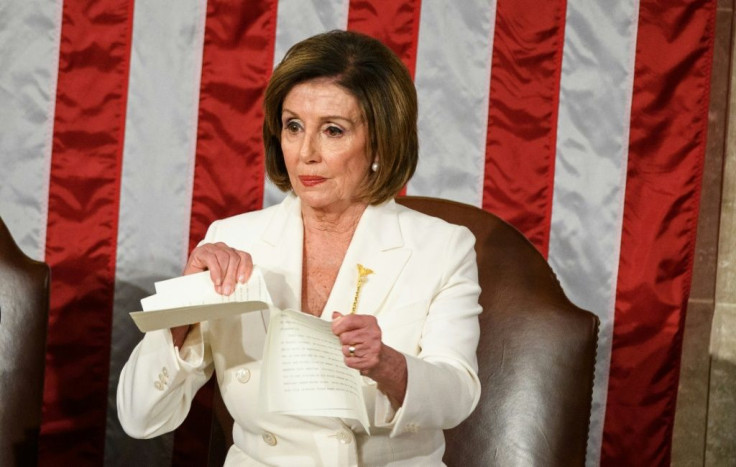Pelosi Coy On Supporting Sanders' Nomination If He Has Only A Plurality Rather Than Majority Of Delegates

KEY POINTS
- Sanders currently is the frontrunner in the field of possible Democratic nominees with 45 of the estimated 101 delegates assigned so far
- Sanders has suggested the candidate with most delegates, not necessarily a majority, should be awarded the nomination
- Moderates fear Sanders is not electable nationally and could drag down the rest of the ticket
House Speaker Nancy Pelosi on Thursday declined to say whether she would support the candidate with the most delegates going into the Democratic National Convention if that candidate does not have enough delegates to capture the nomination on the first ballot.
Convention rules require the candidate to win a minimum 1,991 delegates to capture the nomination on the first ballot. So far, Vermont Sen. Bernie Sanders is leading the field with 45 delegates, followed by Pete Buttigieg with 26, former Vice President Joe Biden with 15, and Sens. Elizabeth Warren and Amy Klobuchar with eight and seven, respectively.
“The person who will be nominated will be the person who has a majority plus one. That may happen before they even get to the convention but we’ll see,” Pelosi said at her weekly press conference. “The people will speak and that’s what we’re listening to.”
Pelosi’s comments came amid mounting fears within the party’s moderate wing that Sanders, a self-described Democratic socialist, would win the nomination but prove unelectable nationally and drag down the rest of the ticket. Some have discussed getting Sanders’ rivals to coalesce around another candidate.
Sanders warned earlier this month it would be a “very divisive moment” for the party if the candidate with a plurality of delegates is denied the nomination.
“The convention would have to explain to the American people: Hey, candidate X kind of got the most votes and won the most delegates in the primary process but we’re not going to give him or her the nomination,” Sanders said in an interview on MSNBC.
In 2016, Sanders opposed rules that would have favored the leading candidate.
“The rules are very clear, the person who will be nominated for president will be the person who will have the majority of the votes,” Pelosi said.
A briefing was scheduled for later Thursday on the 771 superdelegates, who will get to vote on the second ballot and subsequent ballots if no candidate is chosen in the first round.
Former New York Mayor Michael Bloomberg reportedly is preparing for just such an event. The Wall Street Journal reported Bloomberg is courting former presidential hopeful Andrew Yang’s endorsement, dangling the possibility of putting him in the No. 2 spot.
© Copyright IBTimes 2025. All rights reserved.






















